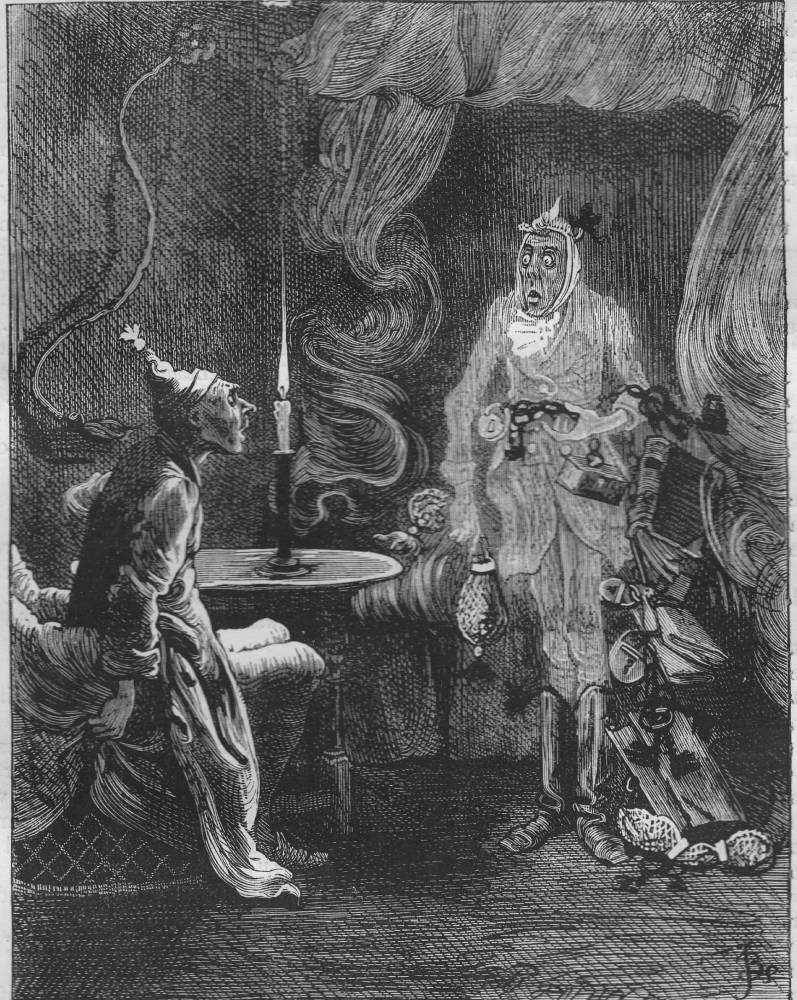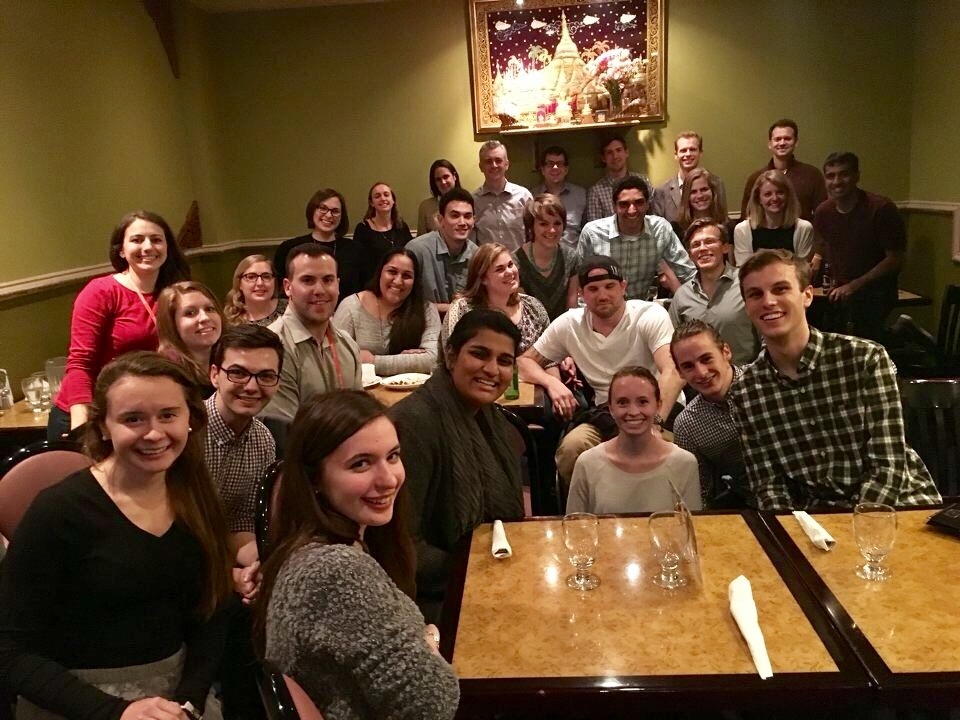Business Just for Profit? I say “Humbug”
Monday, December 5, 2016
I have seen Charles Dickens’ A Christmas Carol on over a dozen occasions, but last weekend, at the Guthrie Theater in Minneapolis, it was as though I was seeing the show for the first time. The fantastic set of cobblestones and storefronts transported me from my theater seat in 2016 straight into Victorian England to consider the story of Ebenezer Scrooge.
However, it wasn’t just the impressive quality of the production that was so novel. The message itself resonated differently because it was the first time I could appreciate the show through the eyes of a business student, with a newfound understanding of what “being in business” really means.
For those who aren’t familiar with A Christmas Carol, it is a holiday ghost story about Scrooge, a wealthy old curmudgeon who hates not only the festive holiday season, but everything it represents: family, joy, generosity, etc. Scorning these things as frivolous, the man has devoted his life to the pursuit of the one thing he loves: money. Then, on one fateful Christmas Eve, he is visited by a series of ghosts who attempt to convince him to reevaluate his life’s target.
In one scene, Scrooge pleas with the ghost of his old, tormented business partner, Jacob Marley, “But you were always a good man of business, Jacob!”
“Business?” Marley retorts, “Mankind was my business! The common welfare was my business; charity, mercy, forbearance, benevolence, were all my business. The dealings of my trade were but a drop of water in the comprehensive ocean of my business!”
Since coming to business school, I’ve started paying more attention to the many interconnected ways business impacts society—the “comprehensive ocean” of which Marley speaks. There’s so much more to business than pursuit of profit, and yet, common wisdom often suggests a dichotomy between the pursuit of profit and public benefit. But are the two mutually exclusive?
On November 3-5, I attended the Net Impact Conference in Philadelphia, Pennsylvania with over twenty of my fellow Carlson MBA students. We joined thousands of other next-generation leaders to grapple with this question. The conference offered over one hundred panels, workshops, competitions, and networking events where we considered how business drives progress and development— beyond supporting jobs, infrastructure, and a better economy.
We heard about how e-commerce giant Etsy advocates for better policies for its artisans and employees, and how a blossoming business called Sirum—a start-up building channels to distribute medications to under-served communities that need them—is shaking up the pharmaceutical industry. I discovered from these speakers and many others that profit and progress can and should work hand-in-hand. Marley’s ghost would be very proud.
Another speaker, Jay Coen Gilbert, co-founder of B-Lab, stressed that choosing to “do good” is not solely altruistic; in fact, it concurrently improves the bottom line. It appeals to and retains the best millennial talent, attracts socially minded consumers who vote with their dollars, and cuts long-run costs by adopting more sustainable business practices. For these reasons, nearly 2,000 for-profit businesses have become officially certified by B-Lab as “Public Benefit Corporations.” In the words of a Fortune Magazine headline, even un-certified firms are feeling the need to “Be Like A B-Corps” these days. Gilbert stressed this is a new paradigm for the business community, one in which businesses strive “not to be best in the world, but best for the world.”
Sitting in my theater seat, I realized that my takeaways from the Net Impact Conference and what I’ve learned in my first few months at business school are also at the heart of Marley’s message to Scrooge. Business is about much more than profit, and every business and business student must stop and assess our greater social responsibility. It doesn’t matter what business we are in—it is how we choose to run our business that matters. As we craft our resolutions for 2017, I encourage us to ask ourselves: What values will we use to define success and guide our careers beyond profit? How can business better support the common welfare of our communities?
Scrooge woke up from his visits from the ghosts feeling invigorated to serve the people in the community around him, and spread his newfound philosophy and wealth with the world. With this lesson in mind, I am excited to be a part of the Carlson School of Management-- learning from the past, practicing in the present, and shaping the future of business.


